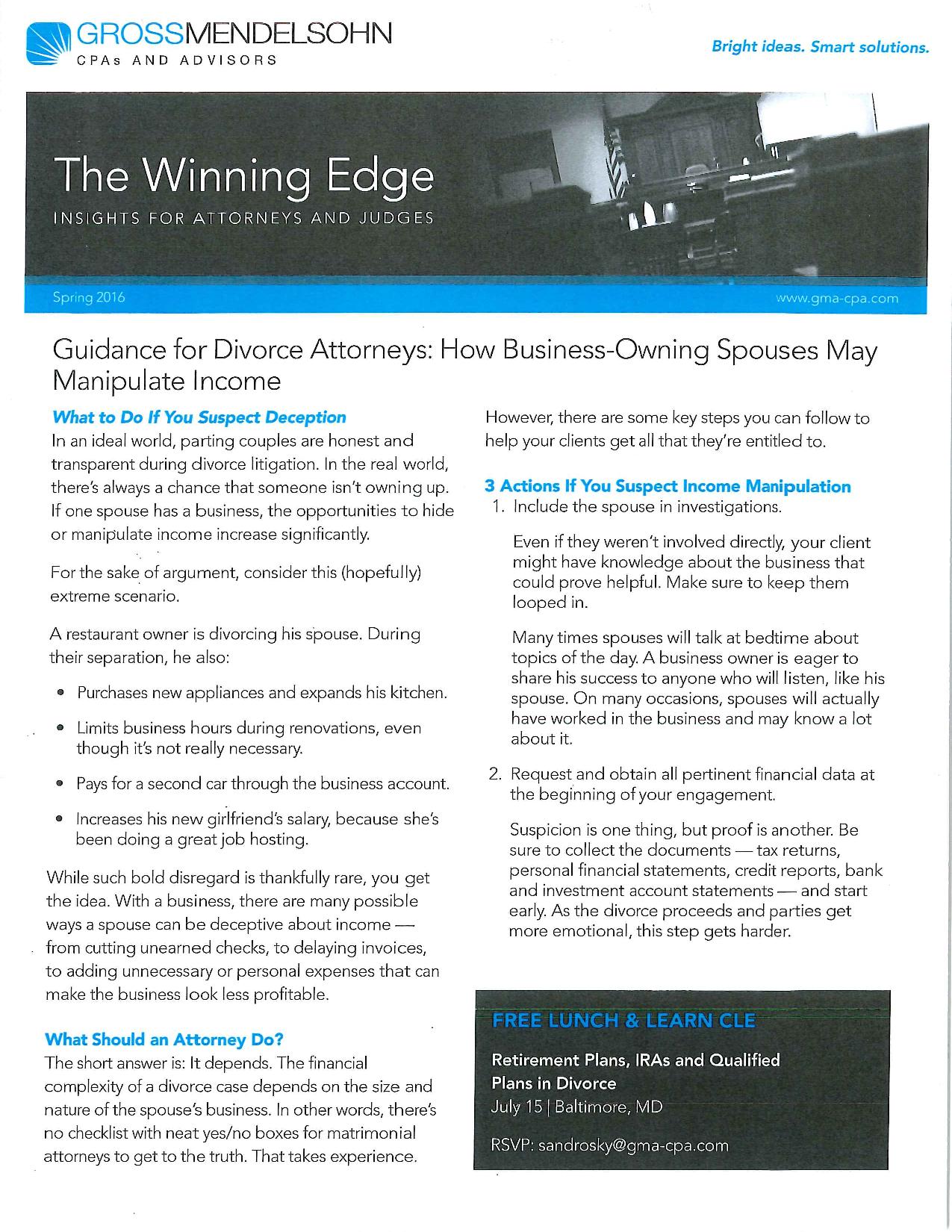In an ideal world, parting couples are honest and transparent during divorce litigation. In the real world, there's always a chance that someone isn't owning up. If one spouse has a business, the opportunities to hide or manipulate income increase significantly. For the sake of argument, consider this (hopefully) extreme scenario.
A restaurant owner is divorcing his spouse. During their separation, he also:
While such bold disregard is thankfully rare, you get the idea. With a business, there are many possible ways a spouse can be deceptive about income - from cutting unearned checks, to delaying invoices, to adding unnecessary or personal expenses that can make the business look less profitable.
The short answer is: It depends. The financial complexity of a divorce case depends on the size and nature of the spouse's business. In other words, there's no checklist with neat yes/no boxes for matrimonial attorneys to get to the truth. That takes experience. However, there are some key steps you can follow to help your clients get all that they're entitled to.
3 Actions If You Suspect Income Manipulation
Dealing with heated situations is par for the course for matrimonial attorneys. Add a business-owning spouse to the mix, and a divorce case can get even muddier. By providing a more sophisticated review of the economics of the marriage and the business, forensic accountants help level the playing field for non-business-owning spouses.
Original Article by Mark Vogel, CPA/ABV/CFF,CMA,CVA (mvogel@gma-cpa.com)


Evening and weekend appointments are available under certain circumstances.
Privacy Policy | Terms & Conditions
Site design and development by Cat's Eye Design